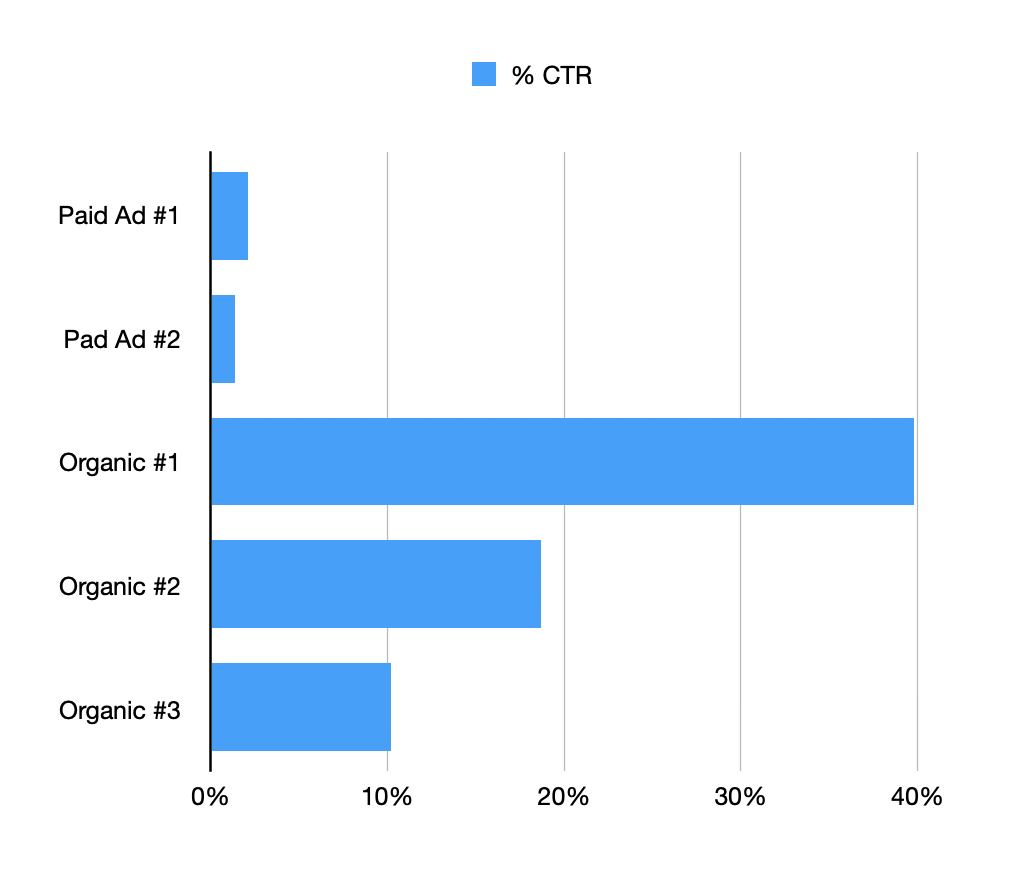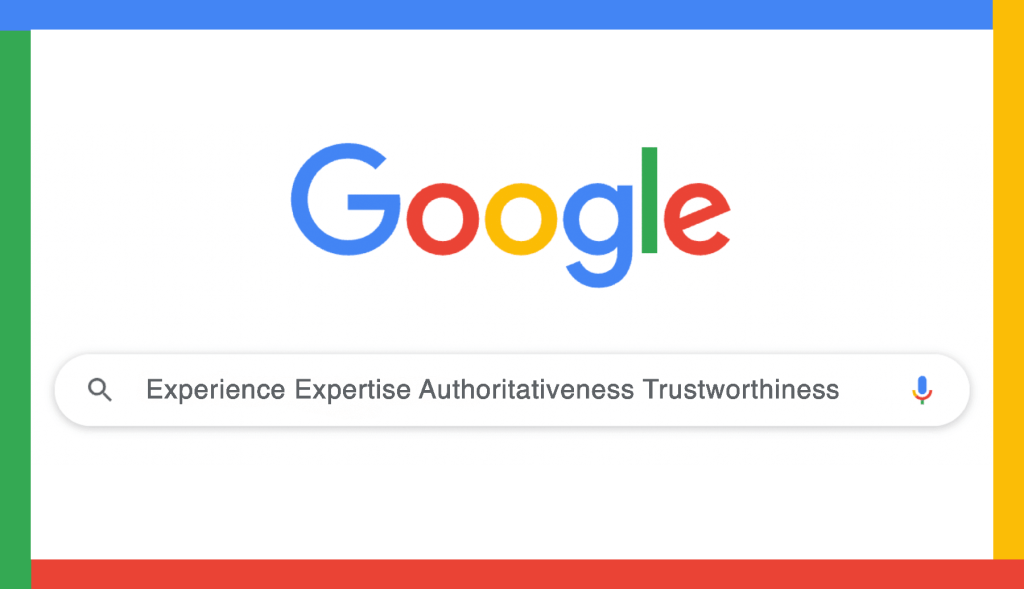UPDATED FEBRUARY 12, 2024
Confused about SEO copywriting?
If you feel like you don’t understand SEO copywriting, you’re not alone. Lots of business owners I speak to say they don’t get it. And some say they don’t want to understand it, because they think it’s some kind of voodoo!

But SEO copywriting isn’t rocket science or voodoo and it actually makes a lot of sense.
Personally, I think anyone who’s investing in SEO copywriting should understand what they’re paying for, how it works, why they need it and what it will do for their website. And I encourage anyone who works with me to ask questions and take an interest.
So here are some of the SEO copywriting questions my prospects and clients ask me and the answers I give them.
An introduction to SEO copywriting

What is SEO?
SEO stands for Search Engine Optimisation. Essentially, it’s about making your website the best it can be, so you get the full benefit from it. And that starts with how it performs in the search engines.
If you want your website to do great things for your business, it needs to rank highly on the Search Engine Results Page (SERP), where your target audience will see it.
The results page typically has any sponsored results (paid ads) at the top. Underneath these are the organic results, which are determined by Google’s algorithm.
We use SEO to get websites ranking organically and without the use of paid ads.
Does organic SEO perform better than paid ads?
Short answer, yes. The higher your web page appears in the organic results, the more clicks it will get.
And studies show the performance of the organic results is improving as more people are trusting Google to understand their search intent and show them what they want to see. This is encouraging, because search intent is set to be a big factor for SEO when AI-powered search is introduced.
Click-through rates (CTR)
FirstPageSage has created this breakdown of the click-through rates (CTR) for the web pages listed at the top of Google’s first page*

*SERPs with no featured snippet, local pack or other media.
Even though they appear underneath the paid ads, the top three organic results get almost 70% of the first page clicks and outperform the paid results by a considerable margin.
How does SEO copywriting work?
Imagine the internet as a huge database of information. Search engines, like Google, help us access that database by retrieving specific web pages based on the searches we type in.
It’s all about the phrases people use to search…
For every business, there will be a whole set of phrases a prospect might type in to find you.
For example, a florist in Kettering might be found for:
- Florist Kettering
- Wedding flowers Kettering
- Funeral flowers Kettering
- Valentine roses, Kettering
- Flower bouquets… you get the idea.
…and the data from those searches
Each search is logged, so there’s a continuous record of the phrases people are typing into Google, how many times each phrase is searched for, and the competition from other websites already ranking for that phrase.
SEO copywriters, like me, use this data, along with other research, to find the optimum phrases your ideal customers are typing into search. We then implant those key phrases into your web copy and content, so when your ideal customers search for them, your site will appear on their Search Engine Results Pages (SERPs).
Where your website ranks on the list will depend on a range of ranking factors, which brings me to our next question…
How is the SERP ranking order decided?
The ranking order of websites on the SERP is decided by Google, using a number of different criteria.
These criteria include:
- Responsiveness for mobile devices
- Fast load speed (2–3 seconds)
- Site security (https encryption)
- Accessibility
- Link-building
- User experience
- Experience, Expertise, Authoritativeness and Trustworthiness
- Updatable site content/Blog.
Along with SEO copywriting, these are all key elements of an effective SEO strategy.
Why do I need SEO copywriting?
There are a couple of compelling reasons to use SEO copywriting on your website.
Websites ranking organically with SEO achieve a better click-through rate (CTR) from the search engine results page (SERP) than websites using paid ads.
When your website is ranking well organically, you won’t be relying on paid ads to get visitors. Unfortunately, that doesn’t mean you can sit back and put your feet up, because SEO is an ongoing process. But it does mean you can switch to more sustainable methods, like regular blogging, which will also create value.
What are the chances of achieving a high ranking?
Your chances of achieving a high organic ranking will depend on a number of factors.
They include the:
- Skill and strategy of your SEO copywriter and content writer
- Competition from other websites in your industry
- Skills of your SEO expert (if you have one)
- Other SEO elements on your website.
How long does it take for a new website to rank?
This is the downside, because, in most cases, it won’t happen quickly.
For a new website to start ranking organically, it first needs to be picked up and indexed by Google. According to Google’s own support page, indexing can take anywhere from 4 days to 4 weeks. This will vary depending on the size of the website, the quality of the content, and the number of links to it from other websites.
To give your website the best chance of being indexed quickly, it needs good-quality optimised content and other sites linking to it that will help Google to locate it.
Once your website is indexed, it has to start climbing up the rankings. The speed at which this happens will depend on how good your website is and how good your content strategy is. Current projections are suggesting it could be anywhere from 3-12 months.
Organic ranking positions can’t be guaranteed
It’s important to note that an organic ranking can never be guaranteed. Not by anyone. This is because nobody is affiliated with Google.
If anyone promises to get your website to the top spot, proceed with caution. They’ll almost certainly be using tactics designed to game the algorithm, which is against Google’s terms of service. Any success you have from tactics like these will be short-lived. And you could be slapped with a penalty from Google that will harm your ranking potential in the long-term.
The only way to succeed in the long-term is to follow Google’s guidelines, use best-practice techniques and avoid anything that might not be legitimate.
Before you commission a project
If you’re thinking of hiring an SEO copywriter, you may have a few questions before you start. And your SEO copywriter will have questions for you, too.

Web design or copy: which should come first?
My answer to this question is always the copy.
The design should be led by the copy and not the other way round.
This is because your SEO copy has an important job to do and its performance could be compromised if we try to squeeze it into a poor-fitting ready-made design template.
If you want to read more about this, check out my article: Which should come first: website copywriting or website design? >>
If your SEO copy is going into a new website design, it’s best to involve your SEO copywriter from the beginning. Either get the copy written first, or get your copywriter and web designer to work together.
What will you need from me?
I’ve written a separate post on this that covers what I’ll need: What will your copywriter need from you? >>
This article includes everything from the copywriting brief to the conditions for an effective working relationship.
One of the important things we need specifically for SEO copy/content is your website’s performance data.
Access to your GA4 and Search Console data
If your SEO copywriter is re-writing your existing website, we’ll want to see how it’s performing in its current state, what keywords it’s ranking for etc. This will help us to inform and shape your strategy.
Some of the data we’ll want to see comes from Google Analytics (GA4) and some comes from Google Search Console (GSC).
Ideally you should have both of these tools installed on your website and they should have been collecting data for at least a couple of months. Both are free to install and use — and if you’ve had your website designed professionally, you may already have them.
How long does SEO copywriting take?
SEO copywriting takes longer than conventional copywriting because there’s more research to do.
It’s an involved, and sometimes challenging, process but it’s worth taking the time to get it right so it delivers the best possible results.
The time needed will depend on the number of pages you have, the complexity of your project, and the competition you’ll have from others in your industry. In other words, you’ll need to ask your copywriter!
The best advice on lead times is to involve your SEO copywriter from the beginning of your project, so we have as much time as possible.
How much does SEO copywriting cost?
My SEO copywriting service starts from £400 per page and is designed to give you the very best chance of a high organic ranking.
Why is it so expensive?
If that seems expensive, it’s because it’s time-consuming and requires a high level of skill.
I’ve spent years learning SEO, keeping my skills up to date and developing a strategy that’s proven to work time and time again. My rates reflect this.
How long until I see results?
If you have an established domain with good technical SEO, you could see dramatic results within weeks.
We optimised one client’s website for a new keyword and it went from ranking nowhere to Google’s top 10 in two weeks, then to Google’s #1 spot within four weeks.
Another client replaced their web copy with my optimised copy and climbed from page nine to the #5 spot in two weeks.
Results like these can never be promised because, ultimately, it’s down to Google. But they do show what might be possible if all the conditions are right.
What if my website is already ranking?
If your website is already ranking on Google for some high-performing search terms, we can keep those and even augment them to push your site higher up the rankings.
When you hire me to write your SEO copy, I’ll ask you to add me as a user on your Google Analytics and Search Console accounts. This will enable me to see what your website is already ranking for and incorporate those phrases into your new copy.
Could my website fall down the rankings?
I’ve had a few clients ask me about this.
SEO copywriting is designed to make your website easier for the search engines to rank. As long as it’s done correctly, there is nothing about the process that would make your website fall down the rankings. It should only be moving upwards.
Can a ranking position be improved on?
When I write your copy, I’ll do everything I can to make sure it ranks well. But SEO copywriting isn’t an exact science, and sometimes a website will plateau lower down the rankings than we hoped.
If that happens, there are some tweaks we can make to try and push it higher and this often works. But, as with all things SEO, there are no guarantees because we can’t influence Google’s algorithm.
My SEO copywriting process
Every SEO copywriter has learned their craft in a slightly different way and may use a slightly different process. To answer these questions, I’ve referred to my own process, which I’ve been using and adapting for the last 15+ years.

What’s involved in SEO copywriting?
Lots of research
To write effective SEO copy, I do a lot of research, including:
- Subject research — to learn more about your industry and the terminology you use
- Customer research — to see what kind of language your ideal customers are using and what aspects of your service are particularly important to them
- Keyword research — to see what relevant search terms your audience is typing into Google
- Competitor research — to see who the top ranking competitors are and what they’re being found for.
Choosing and placing the keywords
When I have my list of keywords, I need to choose the best ones and place them where they’ll have the most impact. This is a careful balancing act that requires skill, experience and understanding.
Most copywriters who specialise in SEO will have developed a successful strategy that’s been proven to work. And this is what you’re paying for.
Writing the copy
Getting traffic to your site is only the first part of the process. When you’ve attracted your ideal customers, you need to persuade them to buy from you.
For this, I need to craft a clear and compelling sales message that focuses on:
- The benefits of what you’re selling
- Why your audience should specifically choose to buy from you
- The features of your product/service, if relevant
- Countering common objections with better reasons to buy.
Receiving your SEO website copy
What will my SEO copy look like?
Your copy will be formatted and laid out to make it as easy as possible for your web designer to use.
Each page will start with the name of the page, e.g. Home Page, About Page. This is just for reference. Underneath that, you’ll find a table containing the page’s unique SEO page title and meta description. And below that, you’ll find the copy you’ll see on the page.
The copy is usually laid out exactly as it should be imported onto the site. You’ll notice a little tag next to each heading, like this: <h1>, <h2>, <h3>, <h4>. These show what size each heading needs to be and they’re just for your web designer’s reference.
What if the copy isn’t what I was expecting?
SEO copywriting can be unpredictable. Customers use their own language when they’re searching, which means they may not use the correct industry terms.
And sometimes they’ll bypass the word you want to use in favour of one that’s quicker and easier to type.
For example, you might prefer to say contemporary doors, but your audience might be searching for modern doors.
If you want results from your SEO copy, you’ll need to expect this and accept it. Because unless you use your customers’ language, it could be difficult for them to find you.
Keywords can change over time
New terminology, new trends and new buzzwords mean your SEO keywords could change.
Case in point, a client I worked with many years ago was a supplier of bi-fold doors. But nobody was searching for bi-folding doors back then because the term was virtually unheard of. So we started with a larger mix of keywords, including ‘patio doors’ and ‘sliding doors’, that would bring in traffic until bi-folding doors became more commonplace.
If your industry has had a major shake-up and there are new terms being introduced, it could be a good idea to audit your keywords and make sure they’re still relevant and effective.
Do you need an SEO copywriter?
I’m Jenny Lucas, an SEO copywriter with more than 15 years’ experience in writing websites and blog articles for clients in a variety of industries.
My work has consistently improved my clients’ website rankings, drawing more traffic and generating more sales and enquiries.
If you’re planning a new website or need articles for your blog, please visit my website for more information or to get in touch.

You might also like…



